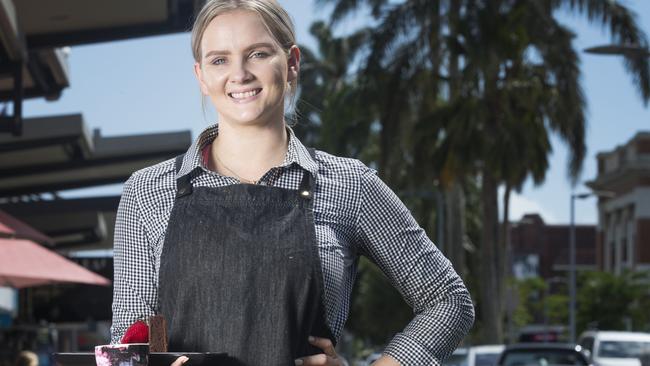Go Qld: Peter Beattie, former premier of Queensland, on why the economy is suffering
FORMER premier Peter Beattie details the “savage cocktail” that has left Queensland fighting to rebuild its economy.
Go QLD
Don't miss out on the headlines from Go QLD. Followed categories will be added to My News.
- Queensland economy: Bernard Salt’s report on the economy
- Queensland economy: ‘Second capital city’ Queensland needs
- Queensland economy: Queensland, you have a problem
- Queenslanders: A remarkable breed of people
WHY does Queensland have a problem? Why is Queensland fighting to rebuild its economy?
The global financial crisis (GFC) belted Queensland badly; slashing government revenues from mining royalties and cutting stamp duty and land tax.
What ideas and projects do you think will drive jobs and economic activity in Queensland? Comment below, tweet using #GoQld or email goqld@news.com.au.
The end of the mining boom not only impacted one of the state’s most important industries but led to low jobs growth which meant weak growth in payroll tax returns. Low inflation savaged fiscal drag and revenues. To make matters worse, tourist numbers dropped because of the high Australian dollar.
Queensland economy: Bernard Salt’s report on Queensland
In a nutshell, the state’s revenue base shrank and our key industries contracted. It was a savage cocktail which impacted Queensland statewide.
The only bright spot was the onset of my government’s liquefied natural gas strategy, which deliver royalty revenue growth of 30 per cent in 2014-15 and hopefully 17 per cent in 2015-16 depending on the price of oil.
To make matters worse, post GFC Queensland politics was dominated by avoidance and the usual political blame game between the political parties. Past governments should have honestly told Queenslanders that the GFC had devastated the state’s royalty’s income, thereby savaging the state’s financial position and together with the end of the mining boom necessitated a re-engineering of the State’s economy. Queenslanders would then have better prepared for the challenges facing us.

Today the economy is making the transition from the mining boom to a much broader economy with a heavy emphasis on services.
The challenge for Queensland is to incorporate innovation as the corner stone of our future economy.
If we fail to do that, our grandchildren with have a lower standard of living than we now enjoy. Queensland has to be more than just a beach and our children have to have every opportunity to get the smart jobs of tomorrow otherwise they will be little more than the waiters of Asia.
So what is Queensland’s biggest challenge?
We live in unprecedented times. Never before has so much human ingenuity been the cause of so much disruption to where and how we live.
What ideas and projects do you think will drive jobs and economic activity in Queensland? Comment below, tweet using #GoQld or email goqld@news.com.au.
With this disruption comes our biggest opportunities. However, we will only successfully take full advantage of them if we develop a culture of innovation.
The ugly reality for Australia is that traditional manufacturing is continuing to shrink and the mining industry is not a large employer.
Therefore we have to turn to innovation and brain power to provide sustainable economic growth protected by patents and expertise. A good example is Australian pharmaceutical manufacturing, our largest manufacturing export industry.

We are smart. Australia has a long history of being an inventive nation.
For much of our history, our inventions were produced by brilliant individuals who received little credit or financial reward for their creativity because of our lack of venture capital. Europe and the US sucked up many of these ideas and commercialised them, such was the problem of being a numerically small nation located ‘Down Under’.
Few Australians would know the extent of our innovativeness which has had enormous impact worldwide.
What ideas and projects do you think will drive jobs and economic activity in Queensland? Comment below, tweet using #GoQld or email goqld@news.com.au.
In the early 20th century alone they included the world’s first feature-length film (The Story of the Kelly Gang), the surf lifesaving reel and surf ski, the self-propelled rotary hoe, the world’s first automatic totalisator for calculating horseracing bets, the heart pacemaker and zinc cream.
After World War II Australian inventors continued to astound the world with the Hills hoist rotary clothes line, the black-box flight data recorder, ultrasound, the orbital engine, the wine cask, the bionic ear, the dual flush toilet, the first frozen embryo baby, the baby safety capsule, the anti-flu medication Relenza; Gardasil, Wi-Fi and the Scramjet.
Queensland continues to produce a large amount of high-quality scientific output. This means we have a strong foundation for the future.

To succeed we have to overcome our core weakness; we are poor at translating our research innovation into companies and jobs in Australia. That is largely done offshore.
With India, China, Indonesia, Philippines, Malaysia, Vietnam and Korea increasing their expenditure on health care, one of the biggest opportunity is right on our doorstep.
This rapidly growing middle class in Asia will drive demand for our innovations and services.
Queensland economy: Bernard Salt’s report on the economy
Spatio technologies will drive changes in architecture, construction and engineering. This is the Smart Century where brain power and what is between our ears will be more important than all the minerals in the ground.
We therefore desperately needed the long-term innovation vision from our political leaders in 2016 to embrace change and see it as an opportunity for growth.
Nevertheless, the challenge is long-term and tough. Our political leaders will find change will take years and will not be easy; real cultural change never is.
We need to look at examples from around the world to convince Australians to join this innovation journey.
Peter Beattie is former premier of Queensland.


